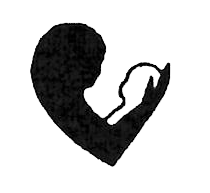The Zika virus has been a hot topic the past few months, especially for women who are pregnant or plan to become pregnant. Hopefully we can answer some common questions many people are having.
What is the Zika Virus? The Zika virus was first discovered in Uganda’s Ziika forest and has been around since the 1940s. Since 2007, there has been an increase in the number of cases reported. The World Health Organization declared the Zika Virus a public health emergency in February. In May 2015, the Zika virus was reported in South America and has since spread throughout the Americas. Signs and symptoms of the Zika virus are pretty non-specific and include rash, fever, arthralgia (joint pain), and conjunctivitis (pink eye).
The Zika virus can also spread to an unborn baby, therefore, it is important for pregnant women and women who desire to become pregnant to avoid exposure as much as possible. Exposure to the Zika virus during pregnancy has been linked to pregnancy loss, microcephaly (small head), and abnormalities in the brain and eye.
How is the Zika Virus Spread? The virus is primarily spread through a bite from an infected mosquito but can also be spread through sexual contact with an infected sexual partner.
Is the Zika virus in the United States? There are no reported mosquito borne Zika virus infections reported in the US but there have been travel associated infections. The number of travel related infections is expected to increase, which could result in local spread of the virus.
Precautions for pregnant women and women who plan to become pregnant:
-Avoid exposure to the virus including avoiding travel to areas where the Zika virus has been detected. An updated list is available through the CDC.
-If travel is unavoidable, women should avoid mosquito bites by using DEET bug spray, keep exposed skin covered and stay in screened in areas or air-conditioning.
-If a male has traveled to a Zika area and/or been exposed to Zika, then sexual contact should be avoided.
Should I be tested for Zika? Routine testing for the Zika virus is not recommended without clinical signs and symptoms. If you develop signs or symptoms during or within 2 weeks of travel, you should contact your healthcare provider for testing.
What if I plan to become pregnant after exposure to the Zika virus? ACOG has released that if a woman has been diagnosed with the Zika virus they should wait 8 weeks from symptoms to attempt pregnancy, and if a man has been diagnosed, they should wait 6 months from onset of symptoms.
For more information visit:
The Centers for Disease Control and Prevention: http://www.cdc.gov/zika/












